
Last time, I promised to post extracts regarding Catholic Ireland from my upcoming book, Cor Jesu Sacratissimum.
Now, posting extracts like this is tricky. A lot of context must usually be sacrificed. And so, before launching into Catholic Ireland itself, I provide a little context from the book. We start with a little consideration of both the Sacraments and the Sacramentals – which played such an enormous role in Catholic Ireland.
Manuscript Extracts:
At least two or three hundred thousand times each day, Jesus Christ becomes present on the altars of the world. At least two or three hundred thousand times each day, His Body is distributed to the world. And at least two or three hundred thousand times each day, His Blood pours out to the world. Here is the planetary beating of the Heart of the World …
Most people live out the whole of their lives asleep to this astounding reality. This is true of even many practising Catholics, who frequently hold (subtly) Protestant conceptions of the Church since Vatican II. They do little to acknowledge – let alone contemplate – the Sanctifying Grace poured out upon them via His Mystical Body.
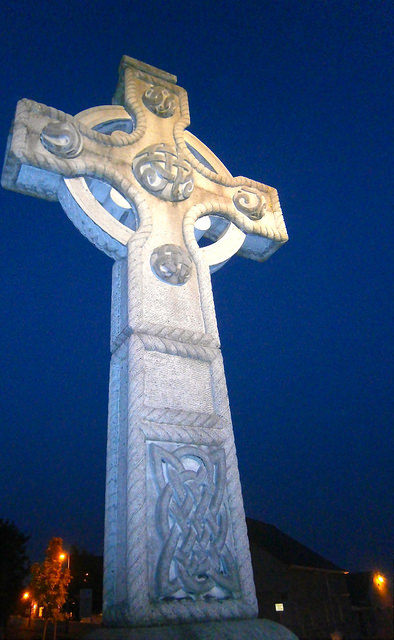
Stupefaction regarding the Church prevails in the world. Yet such obliviousness can be remedied by genuine enquiry. Let us enquire then, not simply of the great Saints of scripture and tradition, but of everything, which is relevant and available to us – including the personal experience of our own souls, as well as our Catholic friends and family.
Let us look to even very ordinary folk, who have been continuously steeped and nourished – usually since birth – in the visible and invisible currents of the Church!
The visible and invisible currents of the Church: Can we not see these as arteries from His Sacred Heart, bearing LIFE – life to all the members of His Body? And does this same image of His arteries pertain not only to the Sacraments, but also to the Sacramentals, as well?
But dear Reader, let me not simply ask this of you, but invite you – if you will – to active contemplation of these matters. That is, go deeper than simply fleeting curiosity.
Rather, ask yourself ever more profoundly: What do such things really mean? What is it to be BATHED in all of these currents – week in, week out – over the course of a lifetime?
What are we to make of a human being, baptised and confirmed in the Catholic Church, who continues to sincerely avail himself of the Sacramental Channels of His Sacred Heart?
What transpires in the soul of a Catholic who prays the Rosary, who is blessed by Holy Water, who gazes in Eucharistic Adoration, who regularly receives the Sacrament of His Flesh and Blood and who is regularly cleansed by the Absolution of Confession?
All of this, we are told is to receive Sanctifying Grace. But let us not be content with rote answers!
Instead, let us keep asking: What does this really mean for the individual seeker? What does it mean for a community?
And what might it mean for an entire people? For let us be clear that there have been times, when it was not only individuals or religious communities which were formed by the Mystici Corporis Christi – but indeed entire nations!
Moreover, such times were not so long ago. And so I will turn to an entire country that even very recently remained steeped in these arteries of Sanctifying Grace – sacred arteries which extended outwards towards the vast majority of its people. I speak of Ireland …
Because in many places in Europe, one must go back centuries in order to feel Christendom. In England, for example, one must go back before the Reformation.
However, in Ireland, one can still feel the dying embers of Christendom – right into the Twenty-First century. And thus it is that I should like to offer you, dear Reader, a very personal account of my own experience of a little island whose entire culture was, until very, very recently, powerfully marked by the effects of the Mystical Body.
For it was not till I went to live in Ireland that I began to really understand how the Mystical Body of Christ could work to redeem not simply individuals, but also how It could work to redeem all of culture …
Yes, Ireland changed my perception of the Mystical Organism of the Church forever. For when I went to live there, I encountered living memory of a culture, which had been very markedly different from the Anglosphere beyond her shores.
At least, living memory in Ireland included a culture radically different from the England and America which had reared me. In other words, in Ireland, people still remembered – and frequently deeply mourned – the integral Catholic culture which they had known in their youth.
This integral Catholic culture – something of it can be glimpsed from a national survey of the Irish Republic from as late as 1973-1974.
That survey found that over ninety per cent of Catholics went to Mass weekly and nearly forty seven per cent went to confession once a month, whereas ninety seven per cent prayed daily. Seventy five per cent of those surveyed put up holy pictures or statues.
Furthermore, around a quarter of the population went to Mass more than once a week and a similar proportion went to confession once a week or more!*
Cynics have tried to paint this extraordinary religiosity as largely social control in a culture where Church and State were closely linked. According to such cynicism, Irish Catholics did what they were expected to by a rigid, hierarchical society.
What this cynicism easily misses is how much Irish religiosity exceeded the expectations of the Church.
For example, the Church expects yearly confession of us – not more. The Church certainly does not expect weekly confession. And yet twenty nine per cent of the Irish population went weekly or more. The Church imposes no obligation to put up holy images or statues. Yet seventy five per cent of the population said they did.
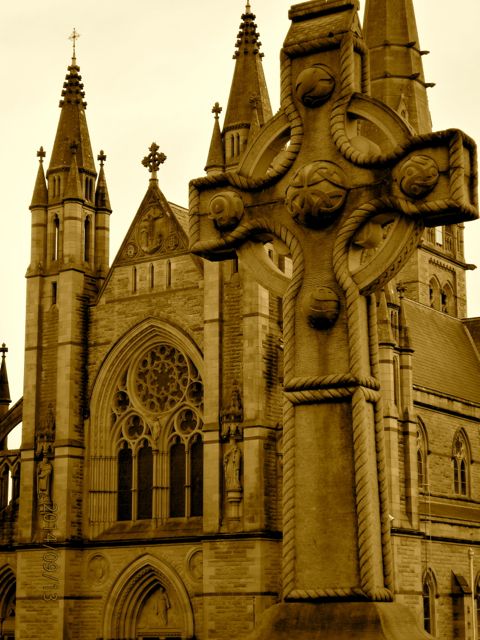
I arrived in Ireland in 2004, thirty years after the survey. Things had changed markedly by then. But what I saw still startled me …
I recall my first Easter in Ireland vividly. Silence descended on the land. It was clear that countless souls accompanied me in veneration of Holy Mystery. But it was not only during the Holy Week Masses that I was joined in worship of the Mystery.
Throughout those days there was a palpable quietness everywhere around me, not simply at Mass. At noon on Good Friday, I was in rural County Clare for the Stations of the Cross and it seemed to me that perhaps half the county would be joining me: silent, still, pious …
These Easter manifestations were an intensification of the Christian culture rooted in the past, yet everywhere still evident.
In the Clare countryside, I heard the bells of the Angelus. Indeed, one could hear the Angelus sounded everyday on Irish television!
And I would walk the city streets of nearby Limerick – surprised by names like Jesuit Lane and Saint Alphonsus Street.
At the entrance to an American-style shopping mall of recent origin, there was a chapel for the shoppers to pray in – a chapel dedicated to St. John Paul II. And there were Masses there every Saturday for the shoppers!
During the week, I walked the city centre. Every two or three blocks, there was a Catholic church. There were not only numerous parish churches in the city – but also the great churches of the Franciscans, the Augustinians, Redemptorists and Jesuits. And often in these churches, there would be not simply one Mass daily, but two or even three.
All this was in a city whose population did not exceed 100,000 souls. Moreover, one would hear groups praying every day Hail Mary, full of Grace.
And the churches frequently had side-chapels set aside exclusively for Eucharistic Adoration throughout the day. The presence that could be felt in those side-chapels of continuous Adoration is beyond words …
By Grace, I had stumbled on the Catholic Mystery, while living in England – but only after 34 years, near-invisible as it had been to me.
But it was not till I went to live in Ireland that I saw a culture where the Mystery was not invisible. And I saw that a culture shaped by that Mystery offered such different cultural possibilities than the Protestant Anglosphere I had known ...
*****
We will be continuing with further extracts from my manuscript regarding Catholic Ireland. However, these will not necessarily appear in succession. Extracts on other themes - for example, the largely Anglo-American New Age movement - may appear intermittently with further entries regarding Catholic Ireland.
Also, my wife Kim is starting to write about Ireland. Soon I will upload entries to her blog. (I remind readers that due to an eye problem that Kim suffers, I must upload everything for Kim which means that she cannot so easily enter into comments and correspondence as myself. However, I know she would deeply appreciate any comments that you may have.)
* The findings of the 1973-1974 National Survey are taken from Tom Inglis' Moral Monopoly - a book severely critical of the Church in Ireland.
Buying Books at Amazon Through These Links Gives Us a Commission. This Supports Our Apostolate. Thank You if You Can Help Us Like This!

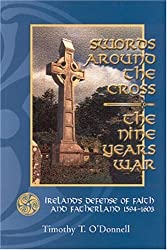

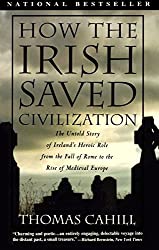
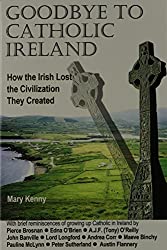
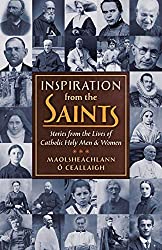
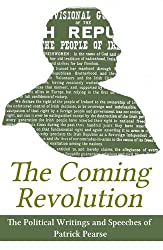
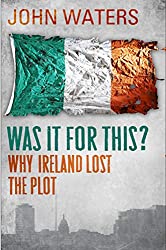
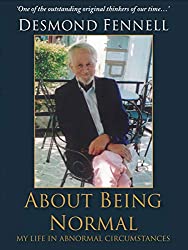
Comments
comments are currently closed
12 responses to “Encountering Catholic Ireland”
I’ve been listening to Irish music lately, a fair amount of that being party music, and as such made by those that are, or who appear to be, revellers, party people, even reprobates. Yet, if you listen, and not even that closely, you see that however reprobate these artists may be, there are marked with a deep, deep Catholicism. They are touched by this same mystery to which you refer, to which you and Ireland bear witness. Ireland must indeed be a place of exceptional piety.
I wouldn’t have noticed if not for your blog. Thanks yet again.
Very interesting indeed Billy.
I’ve long felt that certain musicians sing for the soul of their nation. Bruce Springsteen captures something that is deeply and truly American I think. I’ve loved him many years.
However apart from Springsteen, I don’t know much very popular music at all these days. And if you cared to give examples, I would be very interested to hear who you think might be singing the soul of Catholic Ireland – even despite themselves!
On a related note, I will just say I do know a band playing Irish music, one of whom reads this blog and a certain unknown friend of ours …
I shall plug them: http://corktownpopes.com/home/
I liked their EP a LOT. Highly recommended.
The Corktown Popes stuff was quite good! Probably will need to support them. 🙂
Roger,
At the risk of going far afield, let me give some other background.
I’ve also been listening to more American country music (where you can hear a lot of the survival of Irish forms if you pay attention). These artists aren’t afraid of mentioning God from time to time, or even marriage. There might even be entire songs about marriage. God merits a bare mention, again, from time to time. There’s no deeper discussion or even allusion to it.
I miss sweet songs like “Bus Stop” by the Hollies where marriage was a goal to be greatly desired. But I digress.
I was watching Top Gear on BBC the other night and they were speaking about Fiat’s new concept car, the Gloria. The presenters criticized the name as something an old aunt might have, instead of understanding, as surely the Italians intended, the name refers to the singing of the Gloria in the Mass and the association of a similar sense exultation with a thing of beauty.
I mention these examples to show how few and far between the are in the Anglosphere, most of it, anyway. I’m far from an expert in Irish music, but I listen to it just a little bit, and Catholicism fairly bursts out from it, even where piety would not seem a good fit.
A very old example is the drinking song “The Wild Rover.”
I’ll go home to my parents, confess what I’ve done
And I’ll ask them to pardon their prodigal son.
And if they caress me as ofttimes before
Sure I never will play the wild rover no more.
We get a Gospel reference and if not a reference to sacramental confession, it’s not too much of a reach to say the consciousness of it is there. That’s in a drinking song!
Think also of the U2 song “Gloria.” Not many pop songs, songs that chart, have Latin lyrics.
Gloria…in te domine
Gloria…exultate
Oh Lord, if I had anything
Anything at all
I’d give it to you
I’d give it to you
The song I was thinking of when I wrote the comment was Christy Moore’s Delirium Tremens (1986). I’ll post a YouTube link. The video is a slide show of pictures of the artist with the song as the audio track. While I very much enjoy the song, it might be offensive to those with more delicate sensibilities and I don’t wish to lead anyone into sin or give scandal. So, proceed with caution.
http://www.youtube.com/watch?v=ykG6V4VZgsk
This is a party song, sung to people out for a good time. It is chock full of Catholic imagery and points to a devotional life which has left its mark.
There’s another group, Seanchai and the Unity Squad, that did a song called Irish Catholic Boy. Link to part of the song is below. I can’t say I approved of Liberation Theology, but who makes those 2 words the chorus to a song? This shows some understanding of Catholic teaching, even if it is being honored in part in the breach
http://www.seanchai.com/albums/audio/icbaudio/icb.mp3
The show to listen to is Celtic Crush, hosted by Larry Kirwan of Black 47. It’s on SiriusXM and thus requires a subscription. There is a free trial for streaming and you should be able to find Celtic Crush using the On Demand feature.
For what it may be worth, here’s a link to their top 100 songs of 2009.
http://black47theband.blogspot.com/2009/12/top-100-songs-on-celtic-crush.html
One of those songs: The Leaving of Liverpool.
Farewell to Lower Frederick Street, Anson Terrace and Park Lane
I am bound away for to leave you and I’ll never see you again
So fare thee well my own true love
When I return united we will be
It’s not the leaving of Liverpool that grieves me
But my darling when I think of thee
http://artists.letssingit.com/the-dubliners-lyrics-the-leaving-of-liverpool-jphdgqh
Billy, thank you for all of this!
I’ve not gone to every link yet – but I will.
I am very interested indeed in what you are saying here.
Your point about the Hollies and country music is well-taken.
Popular music is expressing today usually one of two different religions.
Usually it is the modern secular religion – but there are still powerful echoes of the Christian religion that secularism is supplanting.
I am grateful for all you point out. Musical artists who still express the Christian religion rather than the secular religion need to be both noted and encouraged.
On that note, I am glad too to hear that you are thinking of supporting the Corktown Popes.
Not only is the music good, as you say, but I know that one of the people writing the music there is a faithful – and very interesting! – Catholic.
I confess that I hope that the Catholic Irish dimension will emerge more strongly in the Corktown Popes.
We are being drowned in the bland formulas of the secular religion in most music.
So I shall say – both warmly and publicly – to the aforementioned “faithful – and very interesting! -” Corktown Pope who reads this blog:
Give us a break – even a little one – from the secular deluge …
(And if you care to comment about any of the above and/or the Corktown Popes, I’d love to hear …)
[…] For more context, you may wish to read my previous entry here. […]
Since you mentioned supporting artists who express Christian themes, I would highly recommend the progressive-Celtic band, Iona. (This band is based in the UK, their is another group of the same name that’s based in the U.S.) Their lyrics are quite openly Christian and their music is quite imaginative. They are a talented group of musicians. Perhaps you’ll be able to catch them in concert at some point since you are in Ireland.
I continue to enjoy your blog, one of the most intriguing on the net.
Thank you so much for this Sharon. I have listened now twice to your link with real interest and real appreciation. Although as I indicated above, I’ve paid little attention to popular music since I was young, this wave of Celtic-Catholic Christian inspiration does stir my heart. I will find more time for Iona …
I am grateful for you letting me know, as I am for your kind words …
Allow me to insert myself into this conversation.
Most of the Corktown Popes are Catholic–though a couple of Lutherans managed to sneak in! I don’t think the direction of the group lyrically will be moving in an explicitly Christian direction any day soon, but the undertones are there–our name, the title of our album. I do have a tune I may contribute that’s pretty clearly from a Christian perspective, but we’ll see how far that goes. Outside of the Popes, though, I have published quite a bit of poetry exploring Christian themes.
Keep up the good work, Roger!
Michael, I thank you for joining us.
Neurotically maybe, I feared I might have sounded too pushy in what I wrote above regarding the Corktown Popes. It is very obviously not for me to dictate!
Still you mention “undertones” Michael and I shall be very grateful for any further undertones I hear. I am definitely looking forward to further tracks from you, including hopefully the song you mention.
Without wanting to be pushy regarding the Corktown Popes specifically, I want to say something more generally as to why these things seem so important to me.
I will also bring this discussion back to Ireland.
I am seeing ever more clearly how much popular culture is destroying the faith by giving people a purely secular vision – which excludes from vision anything else.
In terms of popular music, let us face it: the scene is dominated by the Anglophone world. While British bands are very significant as well as American ones, there is very little indeed, relatively speaking, from the Catholic cultures of, say, Southern Europe or Latin America.
That Anglophone bias imports a vision that is largely a reflection of the Protestant-secular trajectories that have shaped the entire Anglosphere (with the exception of Ireland – which is Gaelic in origin anyway).
Recently at a forum, a young Irishman made a very telling comment on how this impacts Ireland.
I hope he will not mind my quoting him, nor actually putting some of his comments in bold:
For me, this comment hits the nail on the head … or indeed multiple nails.
We are all being “mentally and spiritually shaped by by an Anglo-American media culture” where the Catholic Mystery is invisible, utterly invisible …
It concerns me very deeply.
For this reason, I have some odd posts at this website about an American comic book movie Daredevil and an American comic book Cloak and Dagger for the sole reason that they are examples of popular American culture where the Church is at least visible …
At least visible.
It is a starting place, at least.
I heard a British intellectual recently opine that for British children today, the inside of a Church is as exotic to them as the inside of an abattoir …
So if I was in any way pushy, Michael please forgive me.
I had no hope that the Corktown Popes would become explicitly Christian.
But I cannot but help for little windows onto another world, an alternative universe to secularism – such as in my comic book examples above – that may at least make the Church known as something “that’s out there”.
Finally, I am glad to hear of your poetry and look forward to discovering it …
[…] earlier instalments have appeared: Encountering Catholic Ireland (here) and Charity, Community and Caring in Catholic […]
[…] here I would also salute Catholic Ireland. For the personal experience of having lived in Catholic Ireland changed me forever. Among many other things, it showed me an English-speaking world, where the Devotion to the Sacred […]